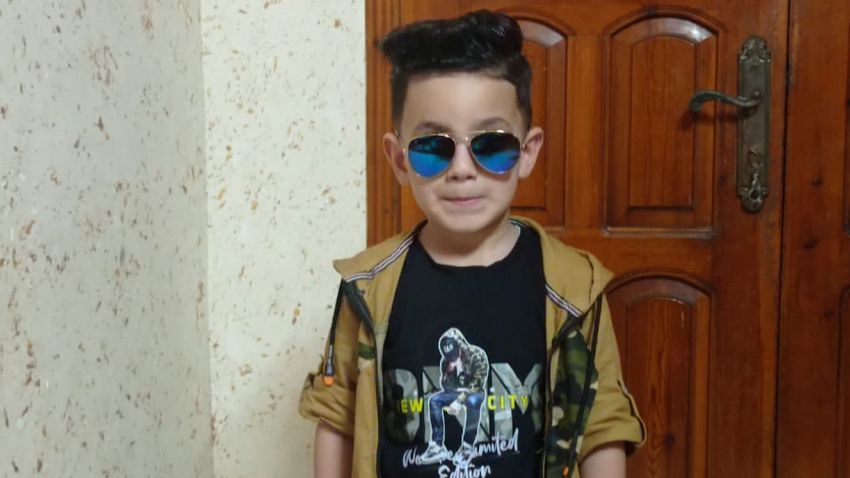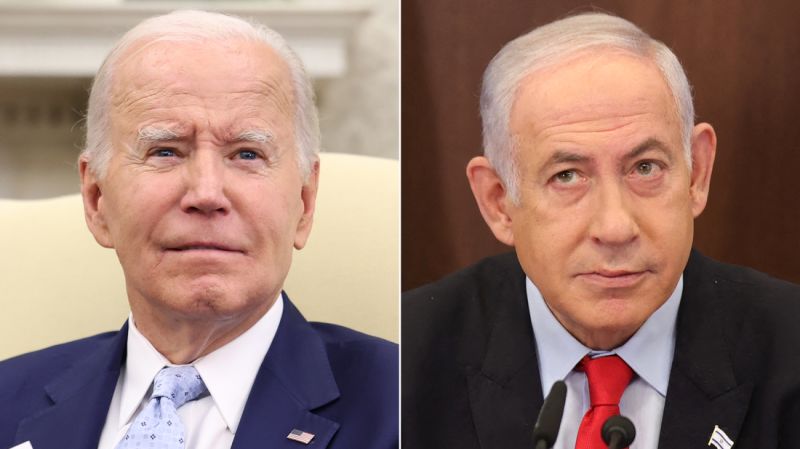President Joe Biden on Sunday pressed his Israeli counterpart to “immediately” scale up the flow of humanitarian aid into Gaza, and a top Israeli official told CNN as many as 100 trucks a day could soon be moving into the enclave.
The increased flow comes as a dire humanitarian crisis grows worse following the intensification of Israel’s assault on the strip. Aid agencies say food, water and medicine are in short supply.
In Biden’s first phone call with Prime Minister Benjamin Netanyahu since the expanded ground operation began, the president “underscored the need to immediately and significantly increase the flow of humanitarian assistance to meet the needs of civilians in Gaza,” according to a White House summary of the call.
The pressure from Biden on the Israeli leader to allow more aid into Gaza comes as the White House expresses concern over the war expanding into a wider regional conflict. The administration has faced increasing calls to show more empathy with Palestinians and some members of the progressive wing of Biden’s party are ramping up their pressure on him to support a ceasefire in order to spare Gaza from further destruction.
Amid those political divisions – and fears that unconditional support for the Israelis could weaken in the US and around the world – American officials have said the US is pressing Israel to expand aid into Gaza, describing the conversations as occasionally difficult.
“We have conversations, like friends do, on the hard questions … on issues associated with humanitarian aid,” US national security adviser Jake Sullivan said Sunday on CBS.
Speaking later Sunday, Israeli Ambassador to the United States Michael Herzog said the flow of aid would soon increase.
“We’re in the process of ramping up humanitarian supplies into Gaza. I think in the next day or two you’ll see up to 100 trucks a day with humanitarian supplies going into Gaza,” Herzog told CNN’s Wolf Blitzer.
US officials expect that in the coming days, up to 100 aid trucks will begin to enter into Gaza per day, after Israel agreed to speed up inspections of the convoys carrying vital humanitarian support, according to a source familiar.
Herzog said Israel was working “in very close coordination” with United Nations agencies and the US government to provide “additional humanitarian solutions to the problems on the ground.”
“We know where the problems are and we work hard to address them. We think this is our duty and also our interest,” Herzog said.
On Monday, White House National Security Council spokesman John Kirby told CNN’s Poppy Harlow that short, localized humanitarian pauses in the fighting should “be seriously considered.”
Pressed by Harlow on efforts to get Americans out of Gaza, Kirby was unable to provide a timeline.
“We believe that there will be a way to get those Americans out. We’d like to do that today if we could. I don’t know – I don’t know how close we are. We believe there’s a way to do this. We just have to work at it,” he said on “CNN This Morning”
CNN reported Sunday that communications in Gaza were partially restored following pressure by the US.
The blackout – which left civilians, aid groups and journalists without any means of communicating with the outside world – came amid heavy Israeli bombardment of the enclave. Service appeared to be gradually restored on Sunday.
A senior US official said the US made clear to Israel the importance of restoring service in Gaza.
“That was something that we cared about, worked on, and we are glad to see that restoration,” Sullivan said on MSNBC.
The White House has faced increased pressure recently from its own party for the president to speak more forcefully about humanitarian conditions in Gaza out more against Israel’s actions in Gaza, including a meeting with Muslim-American leaders who told Biden he needed to show more empathy for Palestinians.
Those critiques grew louder last week after Biden cast doubt on civilian death figures in Gaza provided by the Hamas-controlled health ministry there. Since the conflict began earlier this month, Biden and his administration have faced harsh criticism from Muslim-Americans for how they have handled the crisis in the Middle East, including accusations of demonstrating less empathy for Palestinians than for Israelis.

6-year-old boy was holding his mom’s hand to go make a sandwich — then the airstrikes hit
Some groups, many of whom led door-to-door voting campaigns for Biden in 2020, have warned the approach could become a political liability for the president as he seeks reelection.
“We have since almost the very beginning hours of this conflict talked about the need to respect civilian life talk about abiding by the laws of war, cautioned and urged our Israeli counterparts to be careful how they conduct these operations so that they minimize civilian casualties,” Kirby said on Monday, pushing back against that criticism.
He added, “I am not discounting the fact that civilians have been killed and injured and I absolutely not discounting the fact that there is a humanitarian need. We’re working on this very, very hard to try to get that aid and assistance in there. But Israel is not deliberately trying to kill civilians. They are going after Hamas. We want to make sure they do it in a cautious, careful, deliberate way. But it is not a war aim of Israel to kill innocent civilians the way it is a war aim of Vladimir Putin to do that to Ukraine.”
Read the full article here
